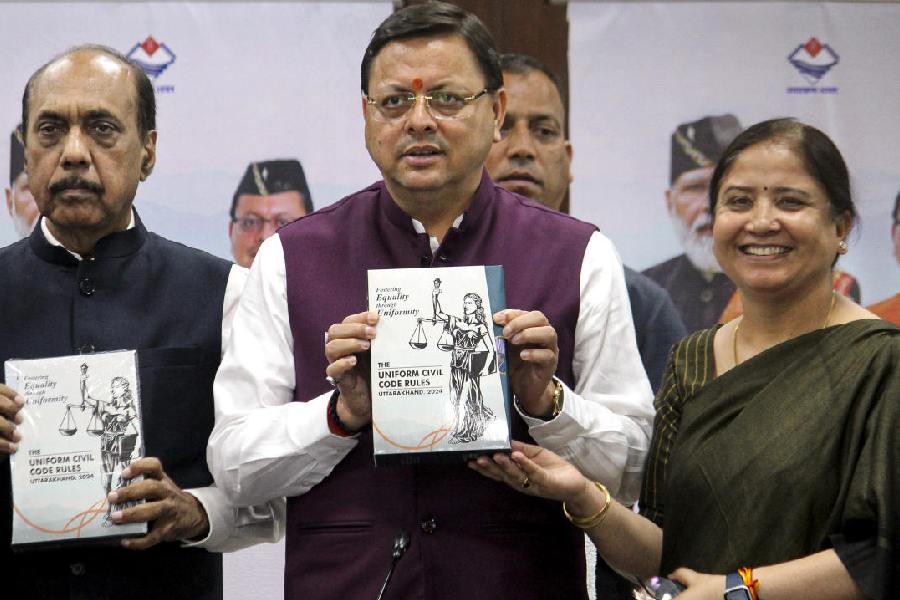Chief minister Pushkar Singh Dhami has said he has received the final rulebook of the Uniform Civil Code and Uttarakhand will soon become the first state to introduce it.
“This Act is for every religion. It is not to target anybody. The government belongs to all castes and communities. The only idea is to have a uniform civil code to ensure that people-related issues are resolved without hassle,” Dhami told reporters in Dehradun on Friday.
He said the 400-page rulebook had four sections — marriage and divorce, live-in relationships, birth and death, and inheritance.
“We will soon hold a cabinet meeting and get approval to implement the UCC effectively. There is room for certain changes if the cabinet members have some suggestions. Even a common man can send us suggestions so that we keep reviewing it regularly and improving it even after it is in force,” he said. The government, however, didn’t make the rulebook public.
Dhami said: “We’ll need several additional staff for the purpose. They will need to be trained to implement this Act correctly and in the right spirit. This will make life easier for several people in the hill state. Several of their works at government offices will be resolved without physically visiting the offices. They will get online facilities sitting at home. We have also made a mobile phone app for this purpose,” the CM said.
While the Muslim community has said that the UCC was meant to target them and interfere in their marriage, divorce and inheritance law, Dhami said: “The UCC is necessary for empowerment and security of women. Only those people are creating confusion about the Act who want the people of the country to remain destabilised. But we aim to make life easier for every community.”
Dhami had pledged before the 2022 Assembly elections that his government would bring the UCC soon after forming a government.
He had formed a committee last year and it had submitted a report after taking into account the views of experts and people. It was cleared in the form of an ordinance from the Vidhan Sabha in February this year. The government sent it to President Droupadi Murmu and received her approval in March. The state government formed another committee to recommend the process of its implementation.











